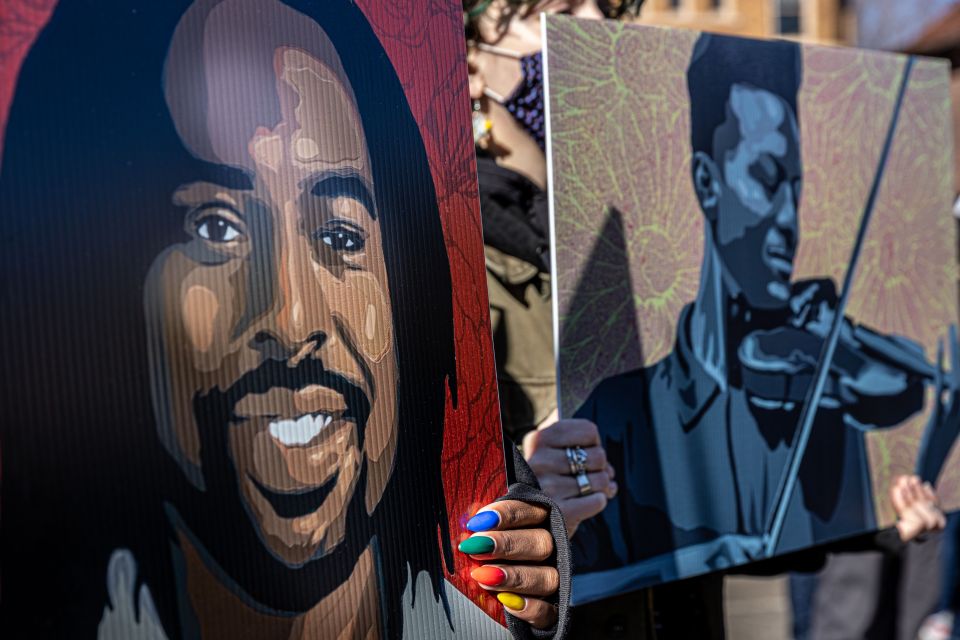- The officers who subdued him applied a carotid choke, which restricts blood to the brain; in the updated autopsy Dr Stephen Cina says he “probably would have recovered had he not received this injection”
Ketamine injection and strangulation caused the death of Elijah McClain, the 23-year-old black man who died in 2019, after Colorado police immobilized him in the carotid artery, the authorized autopsy revealed.
In November of that year, an initial autopsy report was unable to determine the man’s cause of death.
In July of last year a new report was completed, but it was not published until this Friday, in the latter it left the form of death as “undetermined” instead of “homicide” or “accident”.
“I believe this tragic fatality is likely the result of ketamine toxicity,” Dr. Stephen Cina wrote in the updated autopsy. “It is my opinion that [McClain] probably would have recovered had he not received this injection.”
Elijah McClain’s Amended Autopsy Report Lists New Cause of Death
On August 24, 2019, the young man was walking home from a convenience store when someone in Aurora, an eastern suburb of Denver, called police and said he looked “suspicious.”
Officers Randy Roedema, Nathan Woodyard and Jason Rosenblatt arrived at the scene and placed McClain in a carotid choke, restricting blood to the brain.
“I have no weapon. I do not do those things. I don’t fight anything. Why did you attack me? I don’t make weapons. I don’t even kill flies. I don’t eat meat…I’m a vegetarian,” McClain said pleadingly as he was subdued by officers.
As the 23-year-old man passed out, paramedics Jeremy Cooper and Peter Cichuniec arrived at the scene and injected him with ketamine, a powerful sedative.
McClain stopped breathing and was taken to a hospital, declared brain dead, and six days later life support was withdrawn.
Although local prosecutors never filed charges, an investigation led by Colorado Attorney General Phil Weiser led to charges of involuntary manslaughter and criminally negligent homicide in this case.

